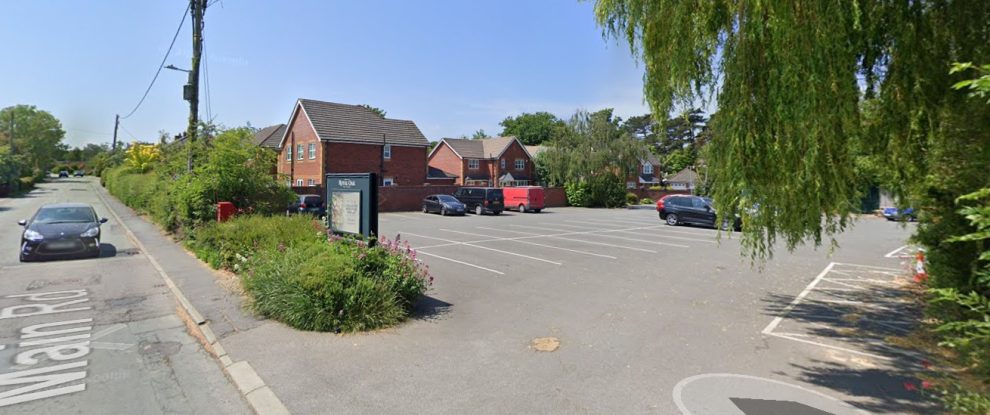PLANS to build houses on a village pub car park have been rejected by Flintshire Council.
The authority’s planning committee narrowly refused the development which would have seen two three-bedroom houses built on the car park of the Royal Oak in Higher Kinnerton.
At the meeting, planning officers recommended councillors grant the application which would have seen the car park retained but reduced from 45 to 35 spaces including three disabled ones.
The pub’s storage facilities would also have been relocated although the future viability of the Royal Oak as a public house would not have been affected by the development, according to the applicant Punch Taverns, which owns the pub.
But there had been opposition to the plans in the village, particularly on grounds of highway safety and loss of hedgerows and trees, with Higher Kinnerton resident Jason Brautigam voicing this at the meeting.
He said: “There is no evidence of demand, 88 homes have been built in the village in the last decade indicating ample supply.
“Reducing to a single exit and entry point at the public house on a busy junction and blind bend compromises road safety and significantly increases the risk of accidents for pedestrians, cyclists and motorists.”
Mr Brautigam added that the car park is regularly full, and this development would lead to an overflow of parking on the main road, adding that part of the village flooded last week.
Jake Russell, agent for the applicants, said the development would ensure the future viability of the pub.
He added: “The applicant has worked hard alongside the council to resolve all the outstanding technical considerations including flooding and drainage, and highways.”
Higher Kinnerton Cllr Mike Allport (Ind) spoke against the application, saying it did not comply with the village plan which had been produced by residents and the community council.
He said: “I do not consider the development of two three-bedroom detached dwellings will meet local housing need for smaller more affordable units.”
Cllr Allport also aired concerns about access and loss of parking, adding “the loss of 10 parking spaces would be totally unacceptable”.
“If the parking is barely adequate now, I can’t see how it’s going to be very more adequate in the future”, he added.

Supporting Cllr Allport, Buckley Pentrobin Cllr Mike Peers (Ind) said: “The loss of 10 parking spaces could affect the viability of the pub as if people can’t park there, they’ll likely go somewhere else or park in the road.”
Buckley Bistre East Cllr Richard Jones (Ind) was another against the plans, who described the application as a speculative “car park land grab to make the best financial benefit” at the expense of local infrastructure, trees, and hedgerows showing no regard to the village plan.
He added that he would be against any development which could harm the future of a viable pub.
“There’s very few of these pubs that are supported and viable, and anything in the way of that I won’t support because of seen too many pubs in areas like Mold, Buckley and Ewloe disappear”, he said.
Mold East Cllr Chris Bithell (Lab) said every application could be viewed as speculative but he too had concerns this one could impact the future of the pub.
“We’ve lost so many of these nationwide, it’s very good that here is a pub that is attracting a good trade”, he said.
Chief planning officer Andrew Farrow said there were no concerns about road safety from the highways department, and that there are no parking restrictions on the main road should the pub car park become full.
But Cllr Peers proposed refusal due to potential impact on the environment caused by loss of trees, impact on amenity, displacement of vehicles onto highway due to loss of parking spaces, and potential impact on the pub’s viability.
This was supported when put to the vote, with the application narrowly refused by six votes to five.



















